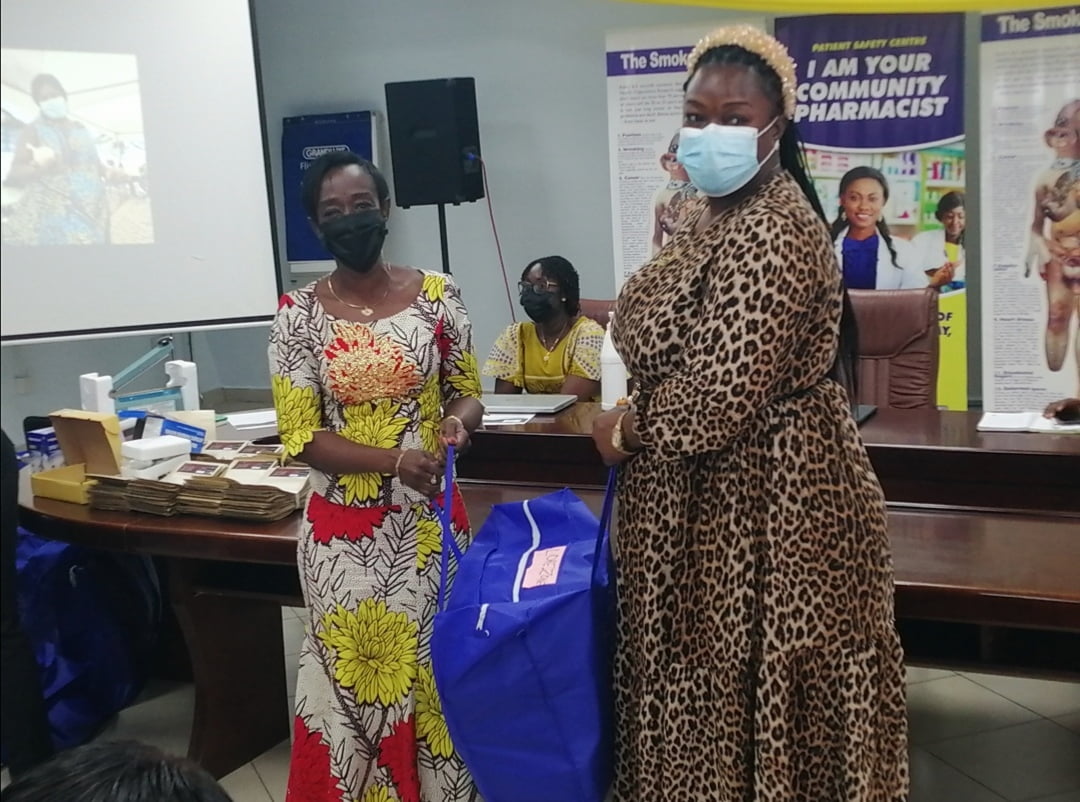FDA certifies 30 cottage food processors under its Progressive Licensing Scheme

The Ghana Food and Drugs Authority (FDA) has certified 30 Small Scale/Cottage Food Processors from the Greater Accra Region who have successfully completed a series of intensive training in Good Manufacturing Practices, Effective Product Labelling and Food Safety under its Progressive Licensing Scheme(PLS) program.
The beneficiary MSMEs, mainly cereal processors from the Greater Accra Region were licensed through the authorities 3-stage licensing scheme and presented with certificates indicating that products from their facilities meet the required health, safety and hygienic standards of major international and local retail shops in the country.
They were also presented with some essential items including labelled pouches for packaging, sealing machines, stamps, digital weighing scales and files for record keeping to aid them undertake effective food processing activities in their facilities.
Speaking at a joint presentation ceremony to officially outdoor the cottage industries, the Chief Executive Officer (CEO) of the Food and Drugs Authority, Mrs. Delese Darko observed her outfit belief that operating such a scheme would position local manufacturers over time to obtain the necessary skill sets and support to allow them to produce high quality products that can effectively compete with similar imported products on the Ghanaian market and even sell beyond our borders.
The move she indicated was crucial as the country works towards the operationalization of the Africa Continental Free Trade Area (AFCFTA) Agenda.
Mrs. Darko was optimistic that the presentation will give a firm indication of her outfit’s strong commitment to support the growth of local industries.
Touching on some gains the authority has made under its licensing scheme, she disclosed:“To date, we are proud to announce that 1,522 food and cosmetic products have been registered and 527 food and cosmetics manufacturing facilities have been licensed.
While commending the World Food Programme and the Ghana Enterprises Agency for their support towards the authority which has aided the smooth implementation of the programme, Mrs. Darko observed her outfit would continue to closely monitor the activities of the MSMEs enrolled under the programme and offer them the necessary technical support through the authority’s Industrial Support Departments to ensure their study progression to the final states of their licensing scheme.
A representative from the World Food Programme (WFP) in a speech expressed delight over the success of the initiative as well as the progress made by the 30 community level processors in improving the safety and quality of their products through enhanced packaging and hygiene procedures.
While commending the Authority for the smooth implementation of the programme, she equally praised the Government of Canada for the financial support.
“As an institution mandated to promote a developed micro small and medium scale enterprises in Ghana with particular focus on women entrepreneurship, we will continuously commit to ensuring that the energy we have brought to collaboration is sustained and improved to enable the two institutions reach out to a lot of MSMEs out there”, a speech delivered on behalf of the Chief Executive Officer of the Ghana Enterprises Agency, Mrs. Kosi Yankey-Ayeh reads.
The Progressive Licensing Scheme is a certification mechanism introduced by the FDA to endorse and validate products of cottage and small enterprises in Ghana.
The initiative was launched by the FDA on June 6, 2020 in line with President Nana Addo Dankwa Akufo-Addo’s Industrialization Agenda.
This is a 3-stage licensing scheme (namely- a Pink, Yellow or Green License) designed to provide the needed support to cottage/micro, small and medium scale enterprises (MSMEs) to meet the FDA’s regulatory requirement in a systematic manner without compromising on the standards of quality and safety.
The certification is a testament that products of such facilities meet the required health, safety and hygienic standards of major international and local retail shops in the country.
Some of these products include local spices, fruit juice, peanut products, pepper sauce (shito), cereal among others.
Source:Joseph Kobla Wemakor|Newsghana24.com

 Good Grow: The Marijuana Farm Founded by Akufo-Addo’s Daughters
Good Grow: The Marijuana Farm Founded by Akufo-Addo’s Daughters  National Food Suppliers for Free SHS set to picket at Education Ministry
National Food Suppliers for Free SHS set to picket at Education Ministry  Information Ministry justifies ¢151k paid to staff as Covid-19 risk allowance
Information Ministry justifies ¢151k paid to staff as Covid-19 risk allowance  I’ll help farmers with tractors to increase productivity – Bawumia promises
I’ll help farmers with tractors to increase productivity – Bawumia promises  CETAG meets national teaching council to conclude on strike
CETAG meets national teaching council to conclude on strike  Adom Kyei Duah cannot be the Jesus that Christians seek – Christian Council of Ghana
Adom Kyei Duah cannot be the Jesus that Christians seek – Christian Council of Ghana  Bawumia’s smartphone pledge misguided and visionless – Adongo
Bawumia’s smartphone pledge misguided and visionless – Adongo